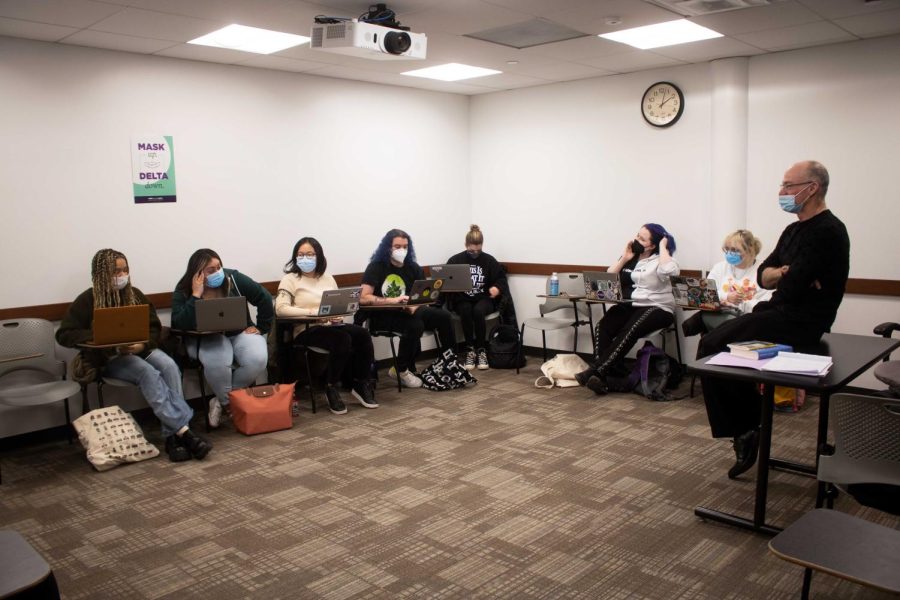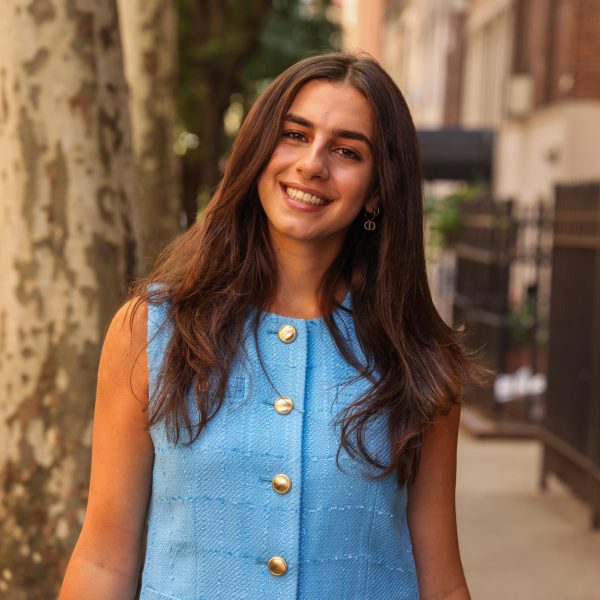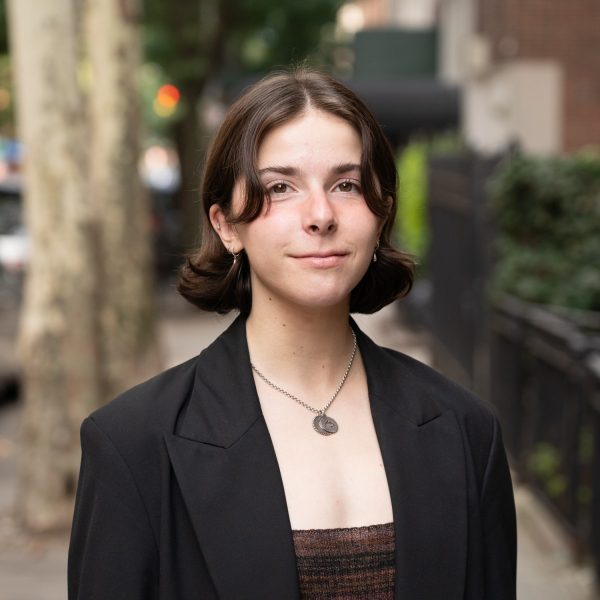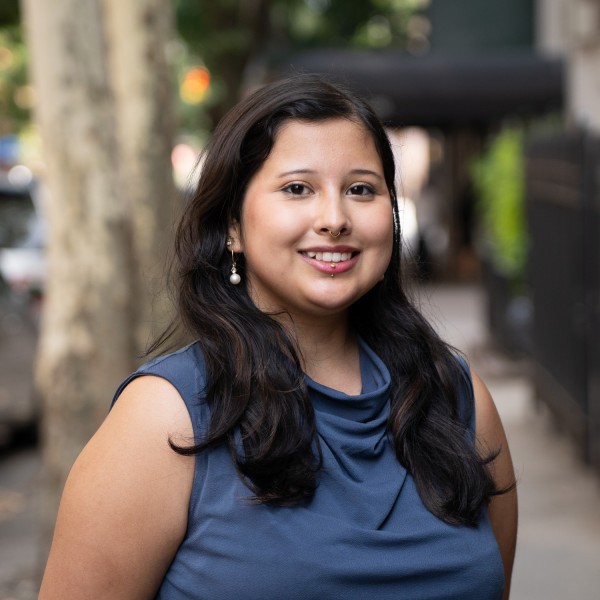Where NYU stands as New York City lifts its subway mask mandate
COVID-19 restrictions on the New York City Subway were eased on Wednesday. At NYU, where masks are still required in certain settings, students and faculty are conflicted over how they think the administration should proceed.
Inside an NYU classroom. NYU continues to require masking in certain locations on campus, such as in classrooms and at Bobst Library. (Farheen Khan for WSN)
September 8, 2022
Gov. Kathy Hochul announced Wednesday that masks are no longer required on public transportation in New York. NYU administrators said that the university has been preparing to do the same — if COVID-19 positivity rates remain low, NYU may drop its mask mandate entirely by the end of September. Though many said that COVID-19 policies should keep pace with those on the national level, some people believe that what is safe for the city may not apply to an NYU classroom.
Currently, NYU only requires masks in spaces where in-person attendance is mandatory, such as classrooms or faculty meetings. The policy has been in place since March.
Tisch junior Micah Hunt said that while he personally prefers to wear a mask, lower positivity rates in New York City have made him more comfortable around unmasked students on campus.
“I feel more safe this semester,” Hunt said. “I was sort of anticipating the mask going away in class. I’d be okay, come [the end of] September, without the mask mandate.”
The university began to enforce a mask mandate at the start of the fall 2021 semester when the university first reopened after the initial pandemic closure, and students returned to the Washington Square campus in person. NYU eased its indoor masking requirements following several changes in citywide COVID-19 policies last spring.
As of early September, Manhattan is considered low risk, with citywide positivity rates at 8.7% and decreasing. NYU is in line with some other U.S. colleges, such as Columbia University, which also plan to drop classroom masking rules at the end of the month. Other New York City universities, like the City University of New York, Pace University and Fordham University have already dropped indoor masking requirements.
“Like society, NYU is entering a new phase of its COVID-19 response,” NYU spokesperson Shonna Keogan told WSN. “Thanks to highly effective vaccines, higher population-level immunity and more widely available medication, students are rarely getting severely ill from COVID-19.”
MJ Knoll-Finn, a senior NYU administrator who works in admissions, said she believes that the university’s policies should ease as case numbers continue to fall. Although she was in favor of the mask mandate at the beginning of the pandemic — particularly because her partner had been undergoing cancer treatment at the time — her views have since changed.
“Now, it’s really okay,” Knoll-Finn said. “Nobody can tell me I can’t wear my mask, and as long as that’s an option, I feel pretty comfortable. I’m on the train every day and I’m one of two people wearing a mask. It seems to very much be a shift happening across the country.”
NYU currently requires all students and faculty without medical or religious exemptions to be fully vaccinated and have an additional booster shot. New Yorkers are now eligible to receive a subsequent booster that specifically targets subvariants of the virus. The Centers for Disease Control and Prevention recommend that individuals that are 12 years of age or older receive the additional booster. The university has not yet announced whether or not the new booster will be required for students, faculty and staff.
Miriam Romero, an administrative assistant at NYU’s School of Global Public Health, said she thinks masks should still be worn in group settings, but that each person should choose whether to receive an additional booster shot.
“I think the mask mandate should be enforced at least until next year to see how things go,” Romero said. “I would have to think about [another booster] — that’s a lot of shots. People who are more at risk should consider taking it, but I don’t think they should force it on people, especially those who have a booster already.”
Rules announced in August also allow faculty members to teach without a mask on, so long as they stay at least six feet away from students. Faculty members are also instructed not to announce positive COVID-19 cases to their classes or cancel classes because of them, according to university policy.
CAS first-year Cerise Walker said that, in most cases, she agrees with the policy that prevents professors from disclosing positive cases to students because of other university guidelines.
“At this point, we all need to get vaccinated to be enrolled anyway,” Walker said. “If there was someone in the class who is immunocompromised, I understand how a private conversation could take place. Keeping people’s health a secret makes sense to me.”
Students like Tisch junior Evan Davis remain concerned about the impact that more lax protocols could have on community health, especially for those vulnerable to serious complications.
“How many immunocompromised people are on this campus, and how is not wearing masks going to affect them?” Davis asked. “I don’t think they should drop it, from an ethical standpoint.”
Contact Adrianna Nehme, Carmo Moniz and Tori Morales at [email protected].






























































































































































